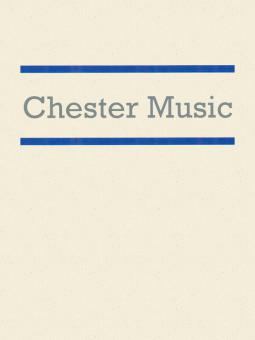John Tavener
Popule Meus - A Meditation
for Solo Cello, Timpani and Strings
John Tavener
Popule Meus - A Meditation
for Solo Cello, Timpani and Strings
- Compositor John Tavener
- Editorial Chester Music
- Nº de pedido CH75966
IVA incluido.,
Más gastos de envío
No disponible en todos los países. Leer más
Descripción de la:
For solo Cello, Timpani, and Strings.
Popule Meus was commissioned through the Magnum Opus project: Kathryn Gould, founding patron and commissioner, and Meet the Composer, project manager.
It was first performed on 6th February 2010, by Yuri Hooker (cello) and the Winnipeg Symphony Orchestra conducted by Alexander Micklethwate.
'Popule Meus is a meditation on the Judaic and Christian text 'O my People, what have I done to you?', but itis also a Universalist contemplation of the wholesale rejection of God by modern man. However much manrejects God, he cannot escape Him, and indeed he is condemned to the supernatural by his deiform nature. InHindu terms he is the Absolute - Ayam Atma Brahma (The Self is the Absolute). In this work the solo cello is the All-Compassionate One, while the timpani represent man in his vain andpointless rejection. Although the solo cello and strings, and the timpani, share the same material (four ideas aregradually revealed, and they revolve four times during the piece), the timpani music is violent and becomesincreasingly frenzied and contracted, while the cello and strings remain still and serene. So even in winning, the Darkness loses, and even in losing the Light wins. Passion, Resurrection andRedemption; or in Hindu terms Atma (The Absolute) alone is real, Maya (The Relative) is merely illusion. '
Popule Meus was commissioned through the Magnum Opus project: Kathryn Gould, founding patron and commissioner, and Meet the Composer, project manager.
It was first performed on 6th February 2010, by Yuri Hooker (cello) and the Winnipeg Symphony Orchestra conducted by Alexander Micklethwate.
Composer's Notes
'Popule Meus is a meditation on the Judaic and Christian text 'O my People, what have I done to you?', but itis also a Universalist contemplation of the wholesale rejection of God by modern man. However much manrejects God, he cannot escape Him, and indeed he is condemned to the supernatural by his deiform nature. InHindu terms he is the Absolute - Ayam Atma Brahma (The Self is the Absolute). In this work the solo cello is the All-Compassionate One, while the timpani represent man in his vain andpointless rejection. Although the solo cello and strings, and the timpani, share the same material (four ideas aregradually revealed, and they revolve four times during the piece), the timpani music is violent and becomesincreasingly frenzied and contracted, while the cello and strings remain still and serene. So even in winning, the Darkness loses, and even in losing the Light wins. Passion, Resurrection andRedemption; or in Hindu terms Atma (The Absolute) alone is real, Maya (The Relative) is merely illusion. '

